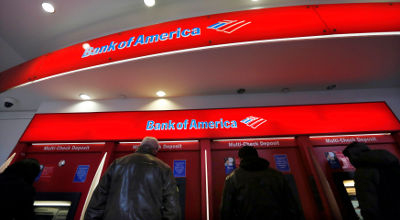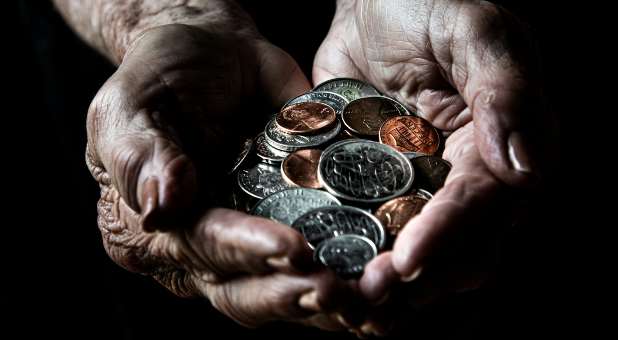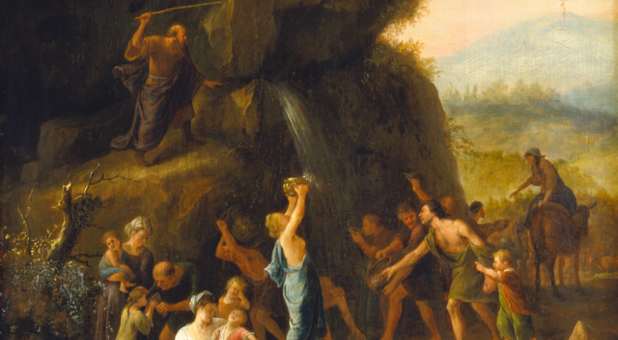Interest rates at eight times the national average! Absolutely no overdraft fees! No minimums! Free checks! Get your ATM fees reimbursed!
With nearly half of the $10 trillion in bank deposits in the U.S. concentrated in the top five banks, it takes a lot of exclamation points for the nation’s 6,000-plus other banks to grab any attention from consumers.
More than one in 10 big-bank customers are dissatisfied and looking for change, according to a 2012 report from Javelin Research & Strategy. Plus, there are also some 34 million households that are unbanked or underbanked, according to the Federal Deposit Insurance Corp. That creates a market for small financial institutions which count their deposits in mere millions instead of trillions.
Federal regulations in the Dodd-Frank financial reform bill put limits on the 90 banks with $10 billion or more in deposits. And banks have been operating in a very low interest rate environment for a couple of years, crimping profits.
To recoup money, megabanks are charging higher monthly fees for checking accounts, raising deposit minimums, cracking down on overdrafts, pumping up any fees they are still allowed to charge and offering little return on interest-bearing accounts.
The three most important considerations before you switch to an online bank service are monthly fees, interest rates and overdraft charges, says Susan Weinstock, director of the Safe Checking in the Electronic Age Project for The Pew Charitable Trusts. Of course, it’s important to pay attention to other factors, including availability of ATMs, customer service reputation and investment options.
How to Evaluate the Offers
In the mobile- and Web-based banking market, consumers are getting bombarded with pitches for new services that home in on dissatisfaction with big banks.
Upstarts include GoBank, an offering from Green Dot Corporation, which has primarily offered prepaid debit cards but now is breaking into banking after buying Provo, Utah-based Bonneville Bank in 2011. Other companies work with established banks, like Portland, Oregon-based Simple, a partnership with Bancorp Inc., now in beta testing, and SmartyPig, partnered with BBVA Compass Bancshares Inc., which offers a goal-oriented savings tool.
Even non-bank offerings like Pageonce, an app for financial organization, are getting into the game. Pageonce announced recently that it would be offering a new service for person-to-person payments.
To figure out if an online financial institution is right for you, you need to know what you’ll be charged on a monthly basis. In addition, you need to know what minimum balance is required to get those charges waived. For example, for basic checking at JPMorgan Chase & Co., you are charged a $12 monthly fee unless you have monthly direct deposits of $500, a $1,500 daily balance or $5,000 or more in linked accounts. At Aspire Federal Credit Union, basic checking is free with no minimum balance. To join, you have to be a U.S. citizen over the age of 18.
If you see an offer like Aspire’s for truly free checking, it means that there are no charges, no matter what the balance. These offers are diminishing, available at only 39 percent of banks—down from 45 percent in 2011 and 79 percent in 2009, according to bankrate.com.
With guidance from Pew, many big banks, including Bank of America, have voluntarily adopted simple disclosure for checking accounts. (Click here to research more banking options.)
Washington-based Pew initially recommended that banks put a box on the scorecard listing rates on interest-bearing checking accounts, but Weinstock says the rates change so often that the banks can’t keep them updated.
Consumers may need to search around to find out the latest rate information. There are plenty of websites that track bank offers, such as bankrate.com or findabetterbank.com.
Some online bank services offer interest rates as high as 3 or 4 percent. The national average for interest-bearing checking accounts on Friday was 0.52 percent, according to bankrate.com.
Internet-based banks, community banks and credit unions, which are 98 percent of the banks in the U.S., tend to offer the highest rates.
Consumers should also do the math to figure out if a 1-2 percent rate differential will make a significant impact on the bottom line. Kasasa, an umbrella group for 148 community banks and credit unions in 39 states, touts its high rates on interest-bearing checking accounts. It calculates the high rates offered by 30 of its member banks would add about $100 in interest in a year to an account of $2,000.
Before consumers hand over their deposits, they should find out how much the bank charges for overdrafts, how they process the deposits and how long it takes to make funds available. Bank procedures can sometimes make one $35 overdraft fee turn into several. This can happen if a person writes multiple checks and the bank processes the largest one first—if it triggers an overdraft, all the smaller checks will be overdrawn too.
Once you are armed with this information, it’s important to consider the value of overdraft protection to cover any transactions that would be denied if you don’t have funds to cover it, Weinstock says.
Pew did a survey last year and found that 54 percent of consumers had not opted for overdraft protection. “Obviously, there’s a lot of confusion,” Weinstock said.
Follow us @ReutersMoney or at http://www.reuters.com/finance/personal-finance. Editing by Lauren Young and Phil Berlowitz
© 2013 Thomson Reuters. All rights reserved.
See an error in this article?
To contact us or to submit an article






















